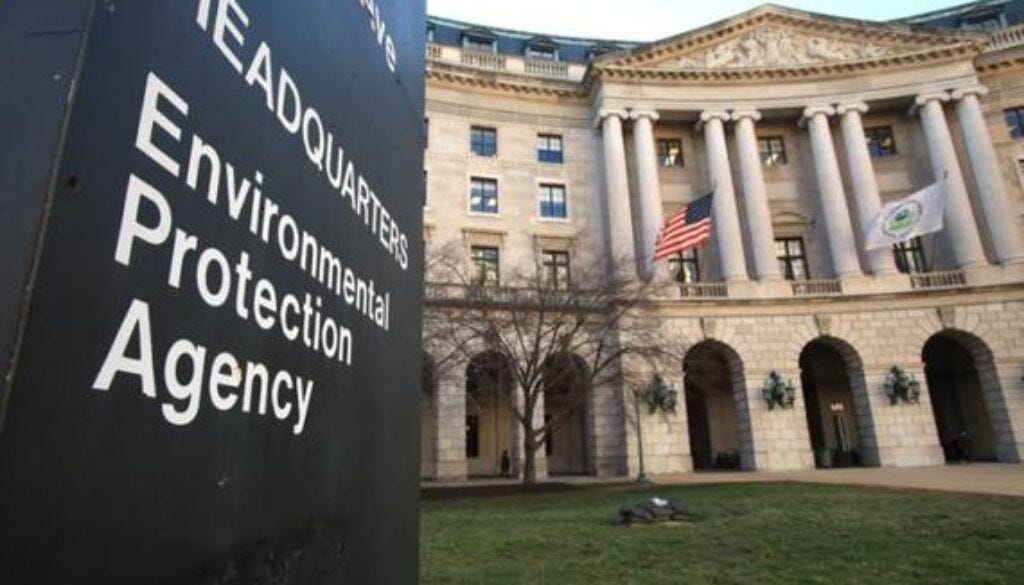Must-read recap: The New Lede's top stories
Vermont's "Climate Superfund Act;" EPA issues warning for weedkiller used on farms, golf courses; Mexico delays planned glyphosate ban; hazardous herbicide banned twice.
Vermont advances bill targeting oil and gas companies for climate cleanup
In the aftermath of costly flooding that swept the US Northeast last year, lawmakers in Vermont last week advanced a proposed new law that aims to make fossil fuel companies liable for the costs of cleaning up communities battered by climate change-related events.
In a 26-3 vote, the state senate passed what state lawmakers are calling the “Climate Superfund Act.” If the bill becomes law, it would be the first of its kind in the country, imposing strict liability for carbon pollution on large oil and gas companies that produce carbon-based fuels. Like the federal Superfund program that holds polluters liable for hazardous waste contamination, the “climate superfund” concept proposes to replicate this polluter pays program for climate pollution.
“I’m proud to vote yes today to respond to the greatest overarching existential threat of our time,” Vermont Sen. Becca White said following the vote.
The measure now moves on to the Vermont House of Representatives, where support appears strong. (Read the rest of the story.)
Concerned about developing babies, EPA warns about danger of weed killer used on farms, golf courses
The US Environmental Protection Agency (EPA) last week took the rare step of issuing a warning about “serious, permanent, and irreversible health risks” associated with a chemical used to kill weeds on farms and golf courses and athletic fields.
Citing “significant health risks to pregnant individuals and their developing babies,” the agency said farmworkers and others handling dimethyl tetrachloroterephthalate, more commonly known as DCPA, were at risk, as are people who might play on courses or fields recently sprayed with the pesticide.
The most serious risks extend to the developing babies of pregnant women, especially those handling DCPA products. The agency said pregnant women exposed to DCPA could experience changes to fetal thyroid hormone levels, which are linked to low birth weight, impaired brain development, decreased IQ, and impaired motor skills later in life. Though product labels say people should stay out of fields for 12 hours after they are sprayed with DCPA, the EPA said evidence indicates that in many cases, sprayed fields would be unsafe for 25 days or more. The agency additionally said that mothers and their developing babies could be at risk if they live near areas where DCPA is used because the pesticide can drift. (Read the rest of the story.)
Mexico delays planned April 1 glyphosate ban
After standing firm for more than three years on plans to enact a ban on the weed killer glyphosate starting today, Mexican officials said they were delaying the ban.
Mexico is currently embroiled in a trade dispute with the United States over its unwillingness to accept genetically modified (GM) corn, typically altered to tolerate being sprayed with glyphosate and to manufacture toxins that repel pests, and Mexican officials have repeatedly stated that they consider both GM corn and glyphosate as threats to the health of the Mexican population as well as to the health of the environment.
But in a surprising reversal, less than a week before the ban was to kick in on April 1, government officials announced that glyphosate use could continue until other options for weed control are found. The move came amid reported heavy lobbying from powerful global agrochemical companies and pressure from US trade officials. Similarly, in 2019, Thailand backed down from a planned glyphosate ban after pressure from US officials and industry actors.
Fernando Bejarano, of the Pesticide Action Network in Mexico, said that the move comes after pressure from industry and US officials. (Read the rest of the story.)
An herbicide so hazardous that courts have banned it twice
(Opinion columns published in The New Lede represent the views of the individual(s) authoring the columns and not necessarily the perspectives of TNL editors.)
In early February, something rather extraordinary happened in the world of American farming. For the second time, a federal court banned the hazardous herbicide dicamba, which has been wreaking havoc on farmers, rural communities and the natural world for seven long years. The Environmental Protection Agency (EPA) re-approved dicamba after the first court action. Will it do so once again?
What about dicamba makes it so hazardous that courts have overruled EPA twice? It’s an incredibly volatile, drift-prone weed-killer, and extremely potent as well: just one teaspoon over an acre stunts tomato plants. It vaporizes while being sprayed, but also evaporates from plant surfaces and soil days after a spraying operation. Once the vapor is airborne, it forms clouds that drift long distances to kill or injure virtually any flowering plant in its path.
And that’s precisely what happened following Monsanto’s 2016 introduction of soybeans and cotton genetically engineered (GE) to withstand dicamba’s killing effects. Widespread planting of these new GE crops triggered a dramatic upsurge in use during late spring and summer, when heat enhances dicamba’s volatility. (Read the rest of the opinion column.)




